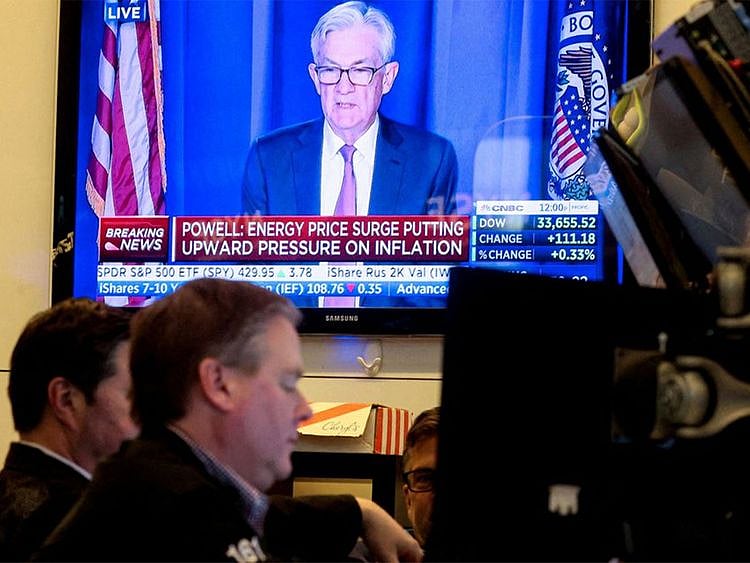Fed decision risks accelerating global recession
It remains to be seen if the Powell gamble will work in slowing global inflation

Faced with a tricky situation, the US Federal Reserve on Wednesday opted for the bitter pill of raising the interest rate by a surprising 75 basis points, the biggest rate hike since 1994, as it seeks to tame inflation, despite warning that the decision may increase the risk of global recession.
The accelerating inflation, the highest in more than four decades, has piled pressure on US financial policymakers to hike the borrowing rate. Short-term borrowing costs are now in a target range between 1.50 per cent and 1.75 per cent.
Speaking to reporters shortly after the decision, Fed chairman Jerome Powell said the central bank has “the tools and the resolve” to push the inflation down. He made it clear that next month, the Fed will raise the rate by “either a 50-basis-point or a 75-basis-point.”
The persistent inflation rate would remain elevated at 5.2 per cent at the end of the year, according to Powell, well above its target of 2 per cent. However, Fed expects the rate to slow down to 2.6 per cent in 2003, a seemingly ambitious target. Thus, the Fed has adopted a hawkish policy that may lead to a slowing of the economy with an increasing risk of recession, amid the lingering supply chain disruption, high oil prices and the Russian-Ukraine war.
“We are not trying to induce a recession now. We are trying to achieve two per cent inflation,” Powell noted. However, the world economy has yet to recover fully from the devastating fallouts of the Covid-19 pandemic.
During the pandemic, the US Federal Reserve as well as other central banks worldwide kept the borrowing rate close to zero to keep the economy going. Powell believes the US economy is ready for “unusually large” rate hike pointing to the “strong” job market.
In the region, most Gulf central banks, in the UAE, Bahrain and Qatar, followed US move, raising their key rates by 75 basis points. Saudi Arabia, which similarly pegs its currency to the US dollar, chose a smaller raise, 50 basis points, citing recent reports that inflation in the kingdom was slowing slightly. Generally, the Gulf states are in a better shape than the rest of the world with regard to the inflation rate.
A volatile market reaction to the Fed’s decision means it will take some time to see if the Powell gamble will work in slowing the inflation without accelerating a global economic recession, although analysts doubt that he can pull it off.
Sign up for the Daily Briefing
Get the latest news and updates straight to your inbox
Network Links
GN StoreDownload our app
© Al Nisr Publishing LLC 2026. All rights reserved.